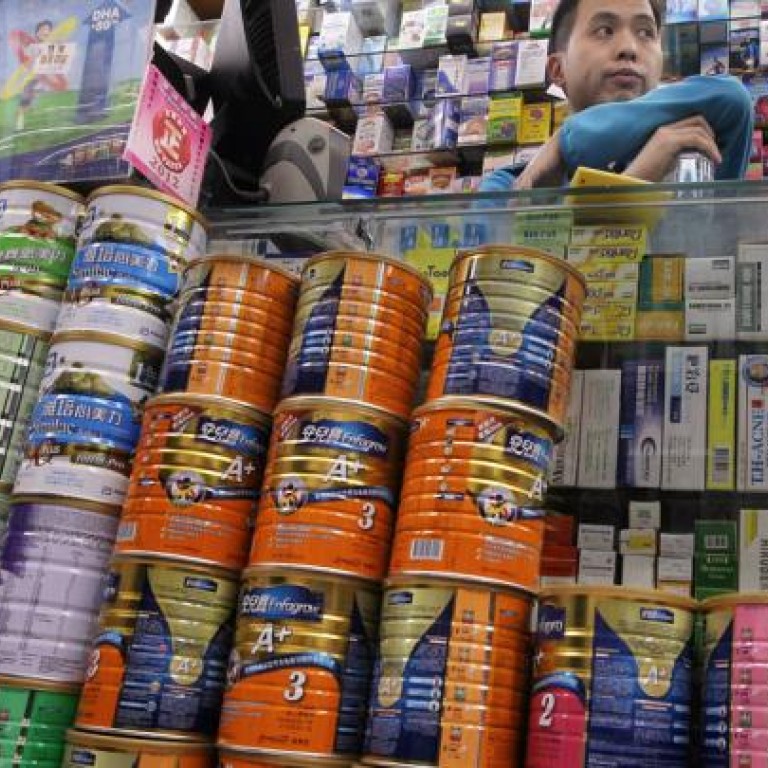
Milk powder restrictions are not designed to humiliate Chinese mainlanders
Alice Wu says viewing the furore over Hong Kong's milk powder restrictions in a context of 'national humiliation' is unhelpful
It's sad for many of us to read articles with headlines like "City is troublesome, says milk powder offender", and commentaries in the describing the lack of food safety on the mainland as a "new collective shame".
Of course, manufacturers of harmful food products, from China or anywhere else in the world, should be ashamed of themselves for carrying out such unconscionable acts. And it's not that we disagree with the need for government regulators to do their job, to restore public trust. It a shame there seems to be systematic failure when it comes to protecting people.
But a "new collective shame"? To embrace China's food safety troubles as part of a continuing narrative of collective humiliation is what is truly troublesome. It is also dangerous to view others' reactions only in that context.
Modern China's identity has long been understood to have been built on the country's "humiliation" by foreign aggressors. That deep sense of injury has played a huge role in China's quest to rise back up in the world. And it is evident in the commentaries on Hong Kong's milk powder restrictions. It's clear that feelings have been hurt, but the truth of the matter remains - these measures, along with their legal penalties, have been imposed to resolve a serious problem. The restrictions are not there to humiliate.
Neither are they expressions of our "ingratitude". But this sort of runaway rhetoric almost always causes befuddled reasoning, which explains why the mainland traveller who found our city "troublesome" felt aggrieved because "the mainland has been giving Hong Kong all the resources, but Hong Kong does not even allow us to buy an additional can of milk powder". For the government to take steps to protect its supply of basic goods, like baby formula, does not make the government or its people ungrateful.
How about the notion that mainland baby-formula shoppers have been humiliated by the demeaning looks they receive, when all they are doing is give away a lot of money that creates jobs? It would seem that our mainland brethren attach quite an unreasonable expectation to purchasing power.
Respect is not earned by purchasing power. Designer bags are not a source of human or national dignity, just as penalties imposed on cross-border milk powder traders are not there to degrade. So stop this humiliation narrative; it has run its course. It's time to introduce guilt, so that people who sell poison as food have a conscience to answer to.
The may be right in pointing out the growing disconnect between people on both sides of the Shenzhen River, but its insistence on reproducing the national narrative of "humiliation", within which it tries to fit every issue, is exasperating and exacerbates the problem. It may be true that we can't escape our own history, but we need not be imprisoned by it.
An overly sensitive sense of shame cripples the ability to reason. It isn't shame that most people lack. It's guilt, and having a conscience will make every difference.

